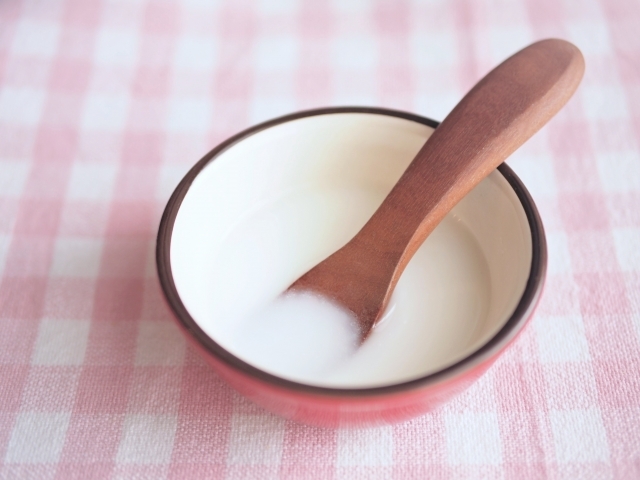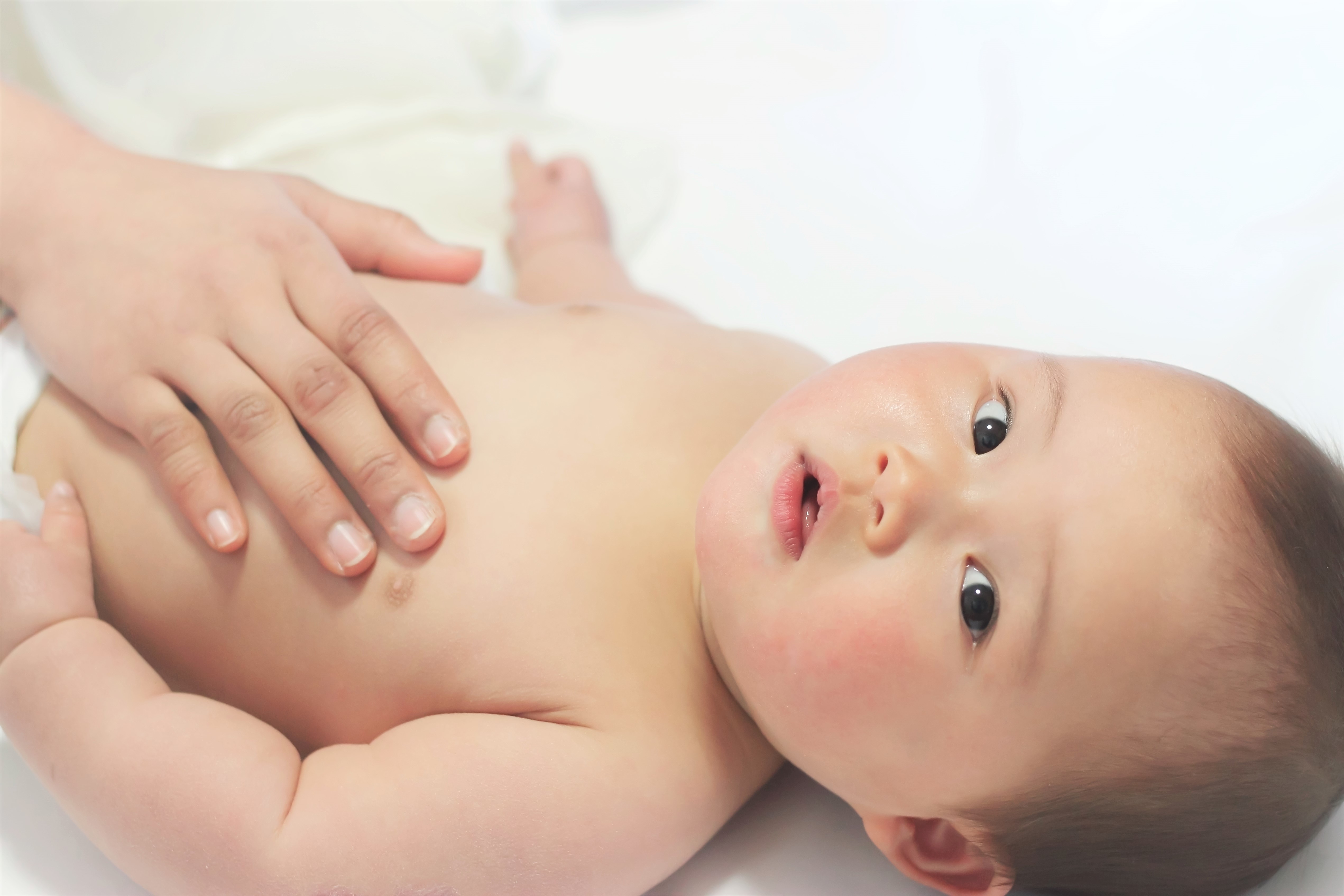Important Points of Food Allergies You Need to Know Before Starting to Wean Food
It is said that babies under the age of 1 year develop food allergies the most. This stage of life is very important to shift from breast milk to baby food. Many parents become concerned when to start baby food and whether they should avoid allergenic food.
In this article, one important element you should consider around the time when baby food starts are explained. That is a food allergy.
Should The Start Of Baby Food Be Delayed To Prevent The Allergy
It is common for parents to get nervous when they feed the baby with baby food for the first time. On top of that, there is a concern for food allergies. The ideas of baby food have been changing from your grandparents’ generation. Keep in mind the following points when starting baby food.
◆ Start Baby Food Within The Standard Recommended Time
In the past, it was common practice to delay baby food if there is a concern of allergies and remove allergenic food from body’s diet such as milk and eggs. This is based on the baby food guide line at that time. As scientific research has advanced, the latest guidelines suggest the opposite. it is said that starting baby food at the appropriate time frame is better(* 1).
Furthermore, It is known that delaying the time to start baby food does not necessarily reduce the risk of food allergies (* 2). There is even a report that suggests eating various food early on reduces the risk of food allergies (* 3).
◆ Introducing Baby Food Within 5 to 6 Months Is Standard
Generally, the appropriate time to start baby food is about 5 to 6 months (※ 1). We must take other various things into account when starting baby food such as the baby’s appetite, growth, development, regional and family food culture. Even it is a standard recommended time frame, you don’t have to rush, but knowing the baby’s development level by referring to the following list is useful. (* 2).
<Baby sign earthenware beginning of the baby food>
- Staring at adults when they are eating
- Showing indication that they want what the adults are eating
- Breast feeding rhythm is getting 3 to 4 hours apart
- When a spoon is put in their mouth, babies use their tongues less to push the spoon out of their mouths
- Being able to hold his or her head in a steady, upright position
- With help, the baby can sit on his or her own
When you start to see these signs, it’s about time to start giving solid food.
◆ A Case Where Consultation With A Doctor Is Needed Before Beginning Baby Food
If one of your family members has a history of food allergies, it is safer to consult a doctor in advance. There is a case where a mother decides not to give milk to the baby because his or her sibling is allergic to milk. However, It is important to consult a doctor and ask for advice first. Since removal of certain food may influence the growth and development of children, mothers shouldn’t make her own decision without proper medical advice.
5 Points of Recommendation When Starting Baby Food
It is important to know how to feed the baby with solid food while minimizing the risk of food allergy. Here are 5 points that are useful.
♦<Point 1> Recommended time frames of food introduction
According to “Breastfeeding / Weaning Assistance Guide” issued by the Ministry of Health, Labor and Welfare, when starting baby food for the first time, rice porridge, that is less of a concern for allergy, is recommended. As the baby gradually gets used to it, food such as potatoes, vegetables, and fruits can be introduced. After a while, the baby gets exposed to variety of food including tofu and white fish. If a baby who is younger than 1 year old eats honey, there is a possibility of getting “Infant botulism”, so caution is needed. (* 1).
Once the baby has gotten the hang of solids, parents can offer whole eggs instead of just egg yolk (hard boiled) and red and blue skin fish instead of only white fish. They can also give dairy products such as yoghurt, cheese with little salt and fat. The variety of cooked food including chicken, beans, vegetables and seaweed with low fat could also be introduced. Fatty meat is not desirable at this point.
If you want to know more about baby food, you can get a consultation during infant health checkups or at local health centers. They may be offering a class of weaning food, so please contact them.
Types of food that are recommended, such as baby food, are selected based on the growth of the baby and the development of digestive organs. It is dangerous to give your baby food earlier than the recommended time. When trying to introduce new food, check the time frame when the specific food is recommended to give.
◆ <Point 2> Offer A Little Amount When Introducing The Food For The First Time
Starting from rice porridge, you will gradually introduce the baby to new food like potato. It’s important to keep it mind that when you offer new food, give the baby only small amount. (※ 1, ※ 2).
Some babies love baby food and they might want to eat more. However, stick to the plan and feed them with only a little amount. The reason for that is because the digestive function of the baby is still immature, and first baby food puts a burden on the internal organs to digest. Also, there is a risk of developing allergic reactions. It is considered that milk, eggs, and wheat are allergenic food. So, causation is needed.
Since babies have weak resistance to bacteria, It is also important to heat up fresh ingredients (※ 2). Keeping good hygiene is important. (* 1).
◆ <point 3>When To Start Baby Food. During the Day On A Week Day IS Recommended
The beginning stage of baby food starts from one meal per day. This means the baby only gets solid food once a day and is fed milk the rest of the day. Some babies want to consume only milk and don’t like to eat baby food. When you start baby food for the first time, you should choose the day when the baby feels well, both physically and mentally.
Also, giving baby food during the day on a weekday makes it easier to respond to unforeseen circumstances. Many medical institutions are open during the weekday. Because of that, when the baby develop food allergy, he or she can be seen by a doctor immediately (* 4).
◆ <point 4> Do Not Remove Milk And Eggs From Baby’s Diet Based On Your Own Judgment
Eggs are known to be one of allergenic food that cause food allergy the most. It is followed by milk and wheat. Currently, it is recommended that those allergenic food should be also introduced with other food within recommended standard time without delay (* 4).
In order to understand the likelihood of food allergy, there are some cases where a baby get blood test before weaning food starts. The blood test reveals antibodies against various foods. However, it is important to keep it mind that the test is not perfect. Let’s suppose that the result of the blood test showed a positive reaction towards specific foods. It does not necessarily mean that symptoms will appear if the baby eat or touch the food. Despite getting negative result toward the food in the examination, there are cases where allergy symptoms occur by eating or touching the food (* 4). That’s the reason why it is said that the test is not necessary before baby food starts. So, when obtaining result, please use it as one of your references.
It’s been said that removing or reducing certain food from the baby’s diet based on your own judgement has harmful impact on the baby’s health (* 4). Acquiring the appropriate knowledge of baby food including the amount of food that needs to be given and how to cook accurately is important. If you are concerned, please consult a doctor.
◆<Point 5> Pay Attention To The Skin Condition
In recent years, research on food allergy has come to realize the mechanism called percutaneous sensitization. It means that when a person with skin condition such as atopic dermatitis scratch their skin, it reduces the barrier function of the skin, and small particles of food from the air get into the body through the compromised skin barrier causing an allergic reaction.
Therefore, based on a doctor’s decision, babies who have atopic dermatitis get tested even before the start of baby food. The time frame of when solid food is introduced and what to introduce to baby sometimes get adjusted. These measures are taken when a baby is susceptible to allergy. A baby who is prone to allergy is said to be sensitive to food as well and the likelihood of developing food allergies is high(* 6, ※ 7).
As you can understand, there is a report that suggests the condition of baby’s skin and food allergy are related (* 3). The baby’s skin is really sensitive and they often develop skin rash and skin redness easily. Observing the skin condition and provide proper skin care is important.
It is difficult for even experts to distinguish between infant rash and atopic dermatitis.
We recommend you consult an expert if you have a concern.
When Feeding Baby Food, Make the Time Enjoyable
AlleHapi team want many babies and mothers to reduce anxiety about food allergy and enjoy the meal time. In life, everybody has to eat. Baby food is the first step.
It is common for anybody to get nervous when introducing food to a baby for the first time. Knowing which hospital to go to and what doctor to see in advance in case of emergency is important.
Introducing solid food is a representation of growth for a baby. We hope meal time become a pleasant experience for parents and babies.
Reference
※ 1: “Breast-Feeding / Weaning Support Guide” In 2007, Ministry of Health, Labor and Welfare
https://www.mhlw.go.jp/shingi/2007/03/dl/s0314-17c.pdf
※ 2: “Baby food Q & A” Minato Health Center Health Promotion Division
https://www.city.minato.tokyo.jp/kenkouzukuri/kenko/kenko/eyo/documents/eiyouqanyuzi.pdf
※ 3: “Child’s Food Allergies New Measures” NHK health ch
https://www.nhk.or.jp/kenko/atc_357.html
※ 4: “About Allergies Of Children” Caps Clinic (Medical Corporation Corporation Nize)
https://www.caps-clinic.jp/allergy
※ 5: “Rheumatism · Allergic Consultant Training Workshop (” Chapter 4 Food Allergy “)” Ministry of Health, Labor and Welfare
https://www.mhlw.go.jp/new-info/kobetu/kenkou/ryumachi/dl/jouhou01-08.pdf
※ 6: “Before Starting Childhood Food Allergies Baby Food …” Ueno Pediatric Clinic
https://www.ueno-kids-clinic.com/column/food02.html
※ 7: “Immunization And Allergies Part 5 How To Proceed With Baby Food” Kibakodo Clinic


